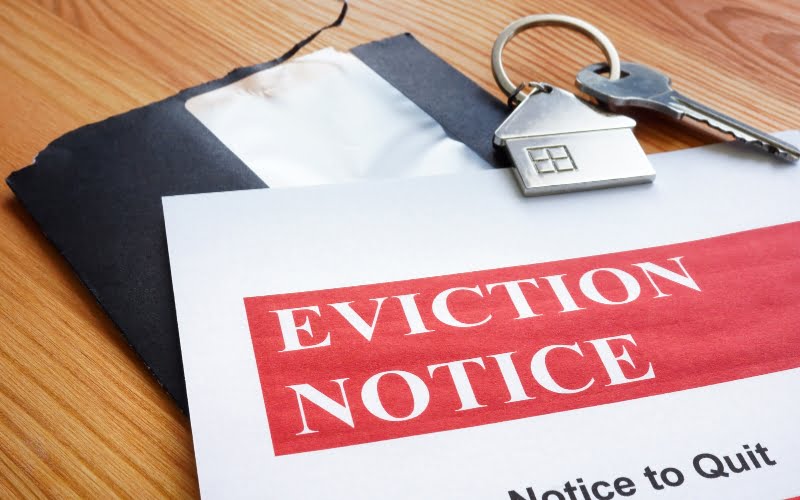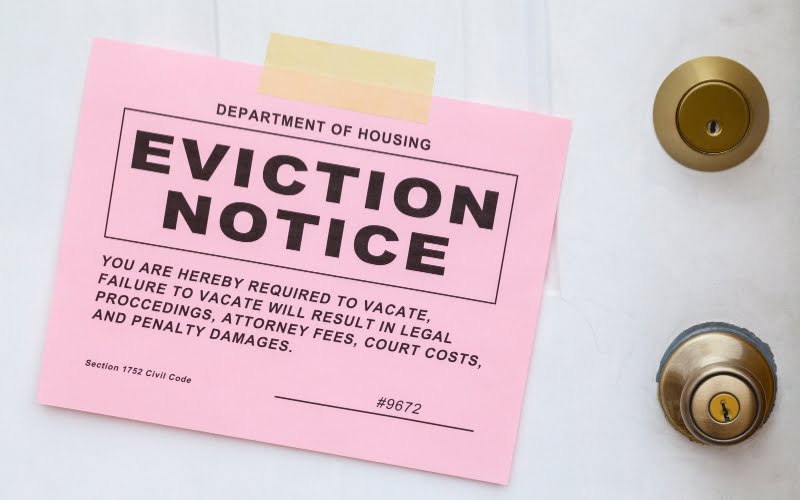Last Updated on March 18, 2024 by Kelvin Nielsen
Are you a landlord and are looking to evict a tenant in Colorado with no lease? If so, this article has you covered!
Colorado law (Colorado Statutes Title 38 Article 12) gives landlords certain rights, including the right to evict tenants under certain situations. When evicting a tenant, you must strictly follow the state’s eviction process.
You must not engage in illegal eviction methods, such as locking out the tenant, removing their belongings, or shutting down their utilities. You must also observe retaliatory and discriminatory laws.
In today’s blog, you’ll everything you need to learn when it comes to evicting a tenant in Colorado without a lease.
How to Evict a Tenant in Colorado with No Lease
Before you embark on the eviction process, first determine the tenant has no lease. Just because you haven’t signed any document with the tenant may not necessarily mean there is no lease existing between you.
Under Colorado law, a lease can be established in either of three ways. That is, through a written- or oral agreement, or if a landlord accepts a payment as rent. After the agreement is established in either of these ways, the tenant automatically acquires certain rights and responsibilities under Article 12 of Title 38 of Colorado Statutes.
Among these rights is a proper removal process. As a landlord, you cannot just wake up one day and kick the tenant out. You must follow the eviction process as established under state law. Which, requires that landlords have a ‘just cause’ for eviction, such as failing to pay rent or violating a term of the lease.
Now, a tenant without a lease is known as a ‘tenant at will’ or a ‘holdover tenant’. Usually, this situation arises when the tenant’s lease has expired and the landlord no longer wants to continue renting to them.
To evict the tenant, the following is the step-by-step process that you must follow.
Step #1: Serve the tenant with a 21-Day Notice to Vacate.
Once the lease has expired, make sure not to accept a rent payment from the tenant. Why? A rent payment would automatically establish a month-to-month lease with the tenant. Consequently, the tenant will have a legal right to continue renting your rental property.
The 21-Day Notice to Vacate will give the tenant up to 21 days to move out of the property. If they don’t, you may continue with the eviction process by filing a lawsuit in court.
Step #2: File a lawsuit with the appropriate county court.
The filing will set you back by between $85 and $135 depending on various factors, such as the amount of the claim.
After successful filing, the court will issue you with a copy of the Summons and Complaint. This will need to be served on the tenant at least 7 days before the day of the hearing.
Step #3: Attend the court hearing.
After the issuance of the summons by the court, the eviction hearing will be held between 7 and 14 days later. The tenant may file a written answer with the court either before or during the eviction hearing.
If the court rules in your favor, you’ll be issued with a writ of restitution and the eviction will continue.
Step #4: Removal of the tenant.
A writ of restitution can only be executed by the sheriff’s office. How quickly they are able to remove the tenant from the property will depend on how prompt you are with scheduling the eviction with them.
Frequently Asked Questions: How to Evict a Tenant in Colorado with No Lease?
Q: What are your rights as a tenant without a lease in Colorado?
A: Even with no lease, tenants in Colorado enjoy certain rights under state law. The tenant has a right to live in a property that meets the state’s basic health, safety, and building codes. The tenant has a right to receive reasonable notice prior to eviction. The specific amount of notice to serve them will depend on how long they have lived there.
A tenant with no lease in Colorado also has a right to have their deposit returned within a reasonable time after moving out.
Q: What is an illegal eviction in Colorado?
A: An illegal eviction is where a landlord engages in “self-help”, retaliatory or discriminatory evictions. It’s also illegal in Colorado to try to evict a tenant without first serving them proper notice.
Q: What a landlord cannot do in Colorado?
A: There are a boatload of things that a landlord cannot do in Colorado. Including, not evicting a tenant without a court order, discriminating against a tenant on the basis of a protected class, retaliating against a tenant for exercising a legal right, and raising rent without notice.
Conclusion
There you have it. A step-by-step process on how to evict a tenant in Colorado with no lease. As can be seen, the only way to evict a tenant in Colorado is by first obtaining a court order. And even then, it’s only the sheriff that can carry out the physical eviction.
Also, just because a tenant has no lease doesn’t mean they don’t enjoy certain rights under the law. As such, you must be careful not to violate any of those rights lest you find yourself in legal hot soup.
Disclosure: The content herein isn’t a substitute for advice from a professional attorney. It’s only meant to serve educational purposes. If you have a specific question, kindly seek expert attorney services.
Sources: Colorado Statutes Title 38 Article 12, Retaliatory Evictions, What are “Self-Help” Evictions,

Hi, I’m Kelvin Nielsen, an experienced landlord and accomplished real estate lawyer. My focus is on answering your questions about renting in the hopes of making your life as a renter or a landlord a bit easier.







